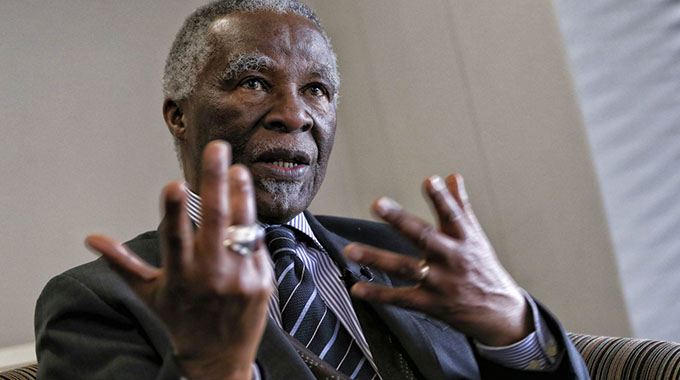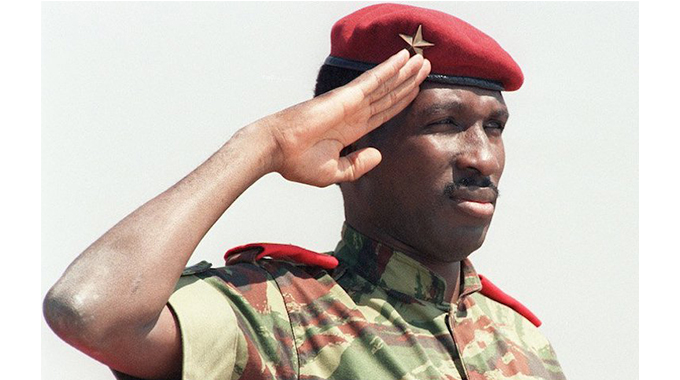
The Sunday News

FORMER South African President Thabo Mbeki’s African Renaissance proposition was in vogue in 1998. The political circles, corporate sectors, and the intelligentsia in South Africa and beyond were captivated by the enchanting idea of an African awakening of a kind that Mbeki was proposing.
Adding fuel to the fire of the enchanting idea was Mbeki’s poetic and philosophical speeches such as the “I am an African” one that vibrated throughout the world, raising eyebrows there and lighting up faces here. Right in the middle of the frenzied excitement about the idea of the African Renaissance, one Professor Pitika Ntuli, wrote a troubling article for the Political Monitor journal, titled: Who is Afraid of the African Renaissance? In the article Prof Ntuli was asking Africans to stop being excited about the poetry and the beauty of the idea of the African Renaissance and start working hard to move it from and idea to a reality in Africa.

Professor Pitika Ntuli
In other words, he was asking Africans to give the idea power over and above the beauty that it had. When poetry and power meet, victory is certain. Nothing is as victorious as an idea that has beauty and power combined. I write today to ask the question: Who is afraid of Pan-Africanism? I wrote here before to suggest that nationalism should be decolonised and abandoned for pan-Africanism in Africa. I guess this is to continue the gesture by highlighting the political wealth of pan-Africanism.
The pan-African idea
Simply put, pan-Africanism refers to African unity. Some African politicians and intellectuals have understood it as an ideology of African liberation. I elect to understand and treat it as an African philosophy of liberation through unity and cohesion in the continent.
Tragically, using the idea as an ideology has reduced pan-Africanism to a slogan that every African politician and intellectual chants but does not practice. There are holidays, buildings and other monuments in African countries that are dedicated to celebrating and commemorating pan-Africanism but pan-Africanism itself is never found in reality. It is reduced to a memory that is commemorated and the holidays become those days when pan-Africanism is remembered as if it were truly dead. It is my argument that pan-Africanism should be resurrected from the cemetery of African history and brought to life as a political and economic policy in the continent. It must be defreezed from a frozen memory and warmed up to a fluid philosophy and practice.
In short Africans should not continue to be told stories about pan-Africanism but they should see it at work everyday in their countries and communities. No African should be a foreigner in any African country, for instance.
Gendering pan-Africanism
When stories are told of pan-African glories and heroism we are reminded about the Founding Fathers of the African continent. There is total silence on whether there were ever any founding mothers except elegant First Ladies that used to accompany the Founding Fathers. It is time in Africa that girls and women should participate equitably in the public affairs of the continent. In the Constitution of every African country there are statutes that pronounce the equality of women to men in all affairs of the countries, but that equality is not seen in the polities and economies of Africa where women are systematically and structurally excluded.
Where women participate in politics they come as symbols, “Mama Africa” here and Mama This there. Sometimes women are brought in as tokens to attract the votes of women that are a majority in every country or to please donors so that more money can flow the way of the governments. One wonders why African women do not use their majority status to ensure that women are effectively represented in public affairs of the continent? Political leadership and participation in Africa have been so naturalised and normalised to men that even women themselves are reluctant to vote other women into public office. As
said, “women should hold half the sky” and men the other half when it comes to political participation.

Thomas Sankara
Women should not be reduced to symbols and tokens in politics. The full and effective participation and representation of women in African politics will enrich the African democratic and developmental experiment. The youths, especially girls, should also have their say in African politics. The old saying that youths are leaders of tomorrow should be retired because, after all, it is a tired idea. It has a neat and very comfortable corner in the dustbins of history.
There is also the clever but politically poor habit of reducing women in African politics to statistics, counting fingers and toes, to show just how many women have been presidents, prime ministers and MPs in the continent. It should not be a wonder or a miracle that women are in politics and in power. It should be normal. African governments and political parties should stop being domains of men where women are tolerated and counted with fingers and toes, and where they are used only as voters and supporters and not leaders in their own right.
Who is afraid of pan-Africanism?
If pan-Africanism refers to radical African unity, then those forces and corners of the world that profit from a divided Africa must be afraid of pan-Africanism. That Africa cannot negotiate with one voice in the world polity and economy is beneficial to some political and economic actors of the world, some that divided Africa in the very first place. That an injury to one African country is not an injury to all African countries allows some bullies of the world to continue to bully African countries and benefit from the old divide and rule stratagem. In short, enemies of Africa who benefit from exploiting African resources are afraid of pan-Africanism. A united Africa is a threat to imperialism, neo-colonialism and coloniality.
That imperialists and neo-colonialists are afraid of pan-Africanism is obvious. What is not obvious is that those Africans that pretend to love their countries some much, who hate other Africans and insist on fortifying colonial borders are afraid of pan-Africanism.
The lazy intellectuals who argue that colonial borders are now impossible to remove as if they were not possible to build are enemies of pan-Africanism. The African leaders that enjoy national sovereignties more than pan-African sovereignty are opponents of pan-Africanism. It is my considered gesture that pan-Africanism is the African philosophy of liberation that, if given a chance, can help the continent resist imperialism, coloniality and the New World Disorder and all the evils that it comes with.
l Cetshwayo Zindabazezwe Mabhena writes from Gezina, Pretoria, South Africa. Contacts: [email protected].



